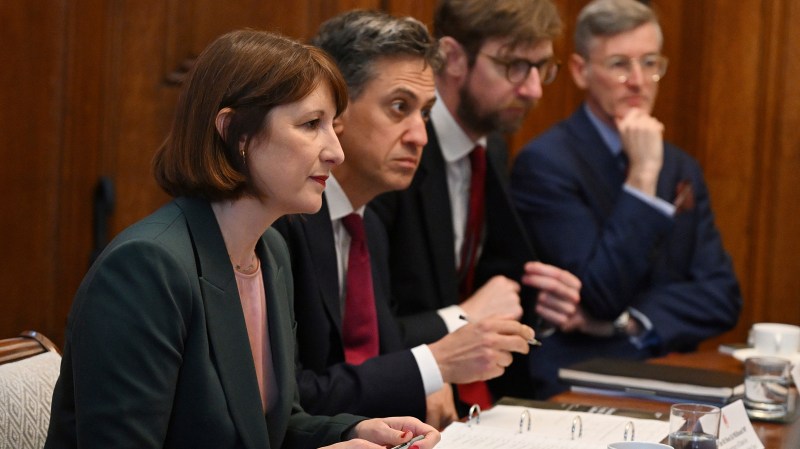Should grandparents be paid to look after their grandchildren?
The average grandparent providing childcare for a son or daughter spends £50 a week of their own money and gives up hours of their time. Many will say it is a pleasure, but should they still be rewarded financially? We seek opposing views
Mark Screeton, the chief executive of the insurer SunLifeMore than one in two grandparents regularly look after their grandchildren and they are as much an integral part of our childcare system as any nursery or after-school club and deserve to be recognised as such. While many of them love looking after their grandchildren and don’t expect compensation for it, there are also those for whom childcare is a financial strain.
Our research suggests that grandparents spend an average of 18 hours a week — more than two full working days — doing school runs, cooking, cleaning, tutoring and generally caring for grandchildren. The cost of a nanny for that time would be £216 a week, or more than £11,000 a year: almost equivalent to the full new state pension. And that doesn’t include the cost of a chauffeur, chef, cleaner and tutor.
Grandparents who want to have a conversation with their children about exactly how much their support is worth could create a “grandparenting invoice” using average wages to show the real-world value of the jobs they are doing for nothing.
• ‘I’m 55 and bringing up another four children’ — welcome to granny daycare
But it’s not just a case of grandparents giving their time — 83 per cent are spending their own money caring for their grandchildren, an average of £50 a week, according to our research. So there is a very tangible financial cost to the help they are providing, which parents should really be covering as a minimum if they can afford to. Our research suggests that grandparents are saving parents thousands of pounds every year.
The extension of early years childcare funding from the government could reduce some of the dependency on grandparents, which may ease financial pressures. But many parents are struggling to find nurseries that have the space to give them their full hours and grandparents are plugging the gaps in government-funded care.
Expanding tax-free childcare to include grandparents would be one way to recognise the vital role they play, especially for those looking after school-age children. In the meantime, grandparents under the state pension age may already be eligible for childcare national insurance credits, which could at least provide a welcome boost to their pension pot.
No
Isang Awah from the University of Oxford’s global parenting initiative Grandparents should not charge for childcare because it could strain relationships, confuse family roles and have a negative impact on a child’s upbringing.
Grandparents being involved in their grandchildren’s lives typically fosters strong family bonds and promotes a sense of community and continuity. Childcare offers an opportunity for them to connect with their grandchildren, provide emotional support and contribute to raising the child in a nurturing environment. This can be mutually beneficial, leading to a strong, meaningful relationship.

Charging for childcare alters this dynamic, making it transactional. If a child realises that their grandparents are being paid to care for them, it could create confusion about family relationships and affect their emotional connections.
Grandparents may also feel pressured to act more like professional caregivers, changing how they interact with the children. Parents may feel that their own parents are prioritising money over family, leading to tension and resentment. This could be exacerbated if one set of grandparents charges while another does not.
• UK childcare costs and financial support for parents
Childcare keeps grandparents physically and mentally active, and provides them with emotional satisfaction and a sense of purpose. Research indicates that time spent with grandchildren by grandparents who do not live in the same household is associated with improved health and wellbeing.
Childcare can be rewarding, but it is also challenging. Grandparents are not novices — they have raised their own children — but age, changing technology and new generations present new challenges. So it is crucial to support them to manage any difficult behaviours or ensure they are not overdoing it.
It’s important for parents to regularly check in with the grandparents to discuss any concerns or adjustments needed. The Parenting for Lifelong Health programme on the World Health Organisation website has been found to be effective in increasing positive parenting behaviours and strengthening caregiver-child relationships.






